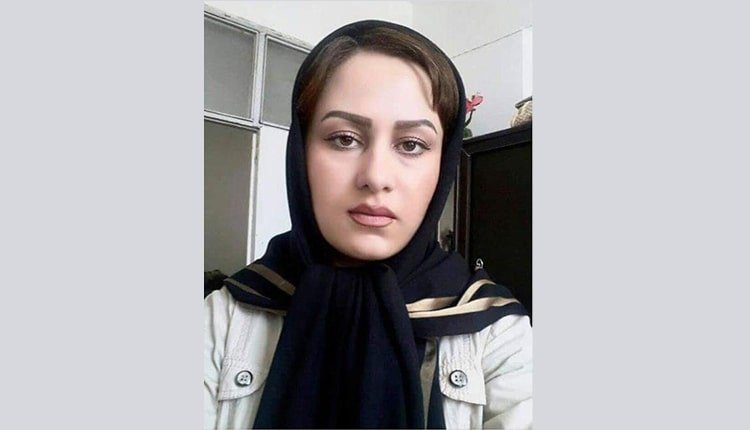
The Iranian regime’s Supreme Court acquitted the assailant of Zahra Navidpour, a former regime MP and IRGC official, Salman Khodadadi.
The NCRI Women’s Committee media outlet has recently reported that the culprit accused of the “suspicious death” of Zahra Navidpour, who was allegedly raped and sexually assaulted by a state official, has now been acquitted of the charge of rape by Iran’s Supreme Court. His name is Salman Khodadadi, and he used to be a deputy of the mullahs’ parliament. Normally anyone convicted of rape would expect a death sentence.
When the defendant’s charge of rape was dismissed, the Supreme Court accepted his appeal and didn’t pursue his case any further due to his diabetes.
At the time of the incident, Zahra Navidpour, 28, was seeking a job following her father’s death. Eventually, she was offered a job by Salman Khodadadi, the city’s deputy and was lured into his office where she was raped. Ms. Navidpour revealed that she knew of other cases where the rape took place.
With all the evidence including audio recordings, Zahra filed a lawsuit against Khodadadi but she was never treated fairly.
Not long after, according to the NCRI‘s Women Committee, Zahra revealed in social media that she had been the subject of acid attacks and death threats from people associated with Khodadadi’s.
#Iran under the mullahs: Zahra Navidpour, 28, had been repeatedly raped over 4 years by Salman Khodadadi, the so-called representative of East Azerbaijan Province in the mullahs’ parliament.https://t.co/TecuydIqNM
— Women's Committee NCRI (@womenncri) April 15, 2019
Sadly, she was found dead at her mother’s home on January 6, 2019, but despite the announcement she had committed suicide, there is heightened suspicion that she had been murdered by the regime. Unfortunately, no autopsy ever took place because her body was snatched and buried in an unknown village.
In a video clip published on the internet in March 2019, the mother of rape victim Zahra Navidpour revealed that her family was under the pressure of security and judiciary officials to undertake the murder of her daughter.
Who is Salman Khodadadi?
Salman Khodadadi was a senior official in the regime after becoming a member of the IRGC after the 1979 Revolution. He occupied various important roles in the regime’s bureaucracy in the sixth, seventh, and eighth parliaments.
This is not the first time that Khodadadi has been associated with sex crimes. He was detained and charged with the rape of two women during his second term in parliament. He was later released on bail. He went on to serve as an advisor to the Minister of Affairs after being disqualified by the Guardians Council for the ninth parliament.
The disqualification didn’t last long as he was soon elevated to chair the parliamentary Social committee by the pro-Rouhani faction in the Majlis.
The Iranian public voiced their outrage at what seemed to be a contradiction between handing out heavy sentences for some civil activists and journalists but ignoring more serious charge of rape and sexual assault by their own officials.
The misogynistic regime of the mullahs does not recognize justice for the victims of rape in Iran
On September 26, 2019, #LeilaZarafshan became the 95th #woman to be executed since the regime President Hassan #Rouhani took office. She was hanged early Thursday morning in the Central Prison of Sanandaj.https://t.co/NxGOLoenVh#WeSupportMEK #MEK #FreeIran @USAdarFarsi pic.twitter.com/TkKBma7dE2
— MEK Iran (Mujahedin-e Khalq) (@MEK_Iran) September 27, 2019
The bill intended to protect women from make violence has finally been passed to the Rouhani government after being postponed in the bureaucratic process for eight years. The parliament has not yet voted on the draft bill.
Female victims of rape in Iran must somehow prove that they have been raped, including witnesses. It is easy and common for the defendants to turn the tables on their victims and get away scot-free.
Unfortunately, Zahra Navidpour is just the latest in a series of tragic cases, many of which never come to light. Those who are victims of rape or sexual abuse by officials linked to the regime rarely have a chance to see justice. Some, like Navidpour eventually end their own lives.
The case of Reyhaneh Jabbari, a 26-year-old decorator, comes to mind. When she was 19 she defended herself against an attempted rape by a former Ministry of Intelligence official, 47-year-old doctor, Morteza Sarbandi, who was married with three children. Jabbari murdered him and was executed at dawn in Gohardasht Prison after serving 7 years in jail.
#Iran #News Exclusive: ‘Iran needs #UN-cried tears’, Reyhaneh Jabbari’s mother Mrs.… https://t.co/HY6ks8Cdxp pic.twitter.com/KK6s4o0w5a
— People's Mojahedin Organization of Iran (PMOI/MEK) (@Mojahedineng) June 12, 2016
Another case that led to a tragic suicide was that of Farinaz Khosravani, who threw herself off the fourth floor of the Tara Hotel in Mahabad, in Kurdistan on May 15th, 2015. She had been provoked into this by the attempted rape by an Intelligence Department agent, Morteza Hashemivand. Neither Hashemivand nor the hotel owner, who was his accomplice, were ever charged.
It’s not without reason that women play such a strong role within the Iranian Resistance and particularly in the People’s Mojahedin Organization of Iran (PMOI/ MEK), finding their ideals in the values and morals the entire organization believes in.
